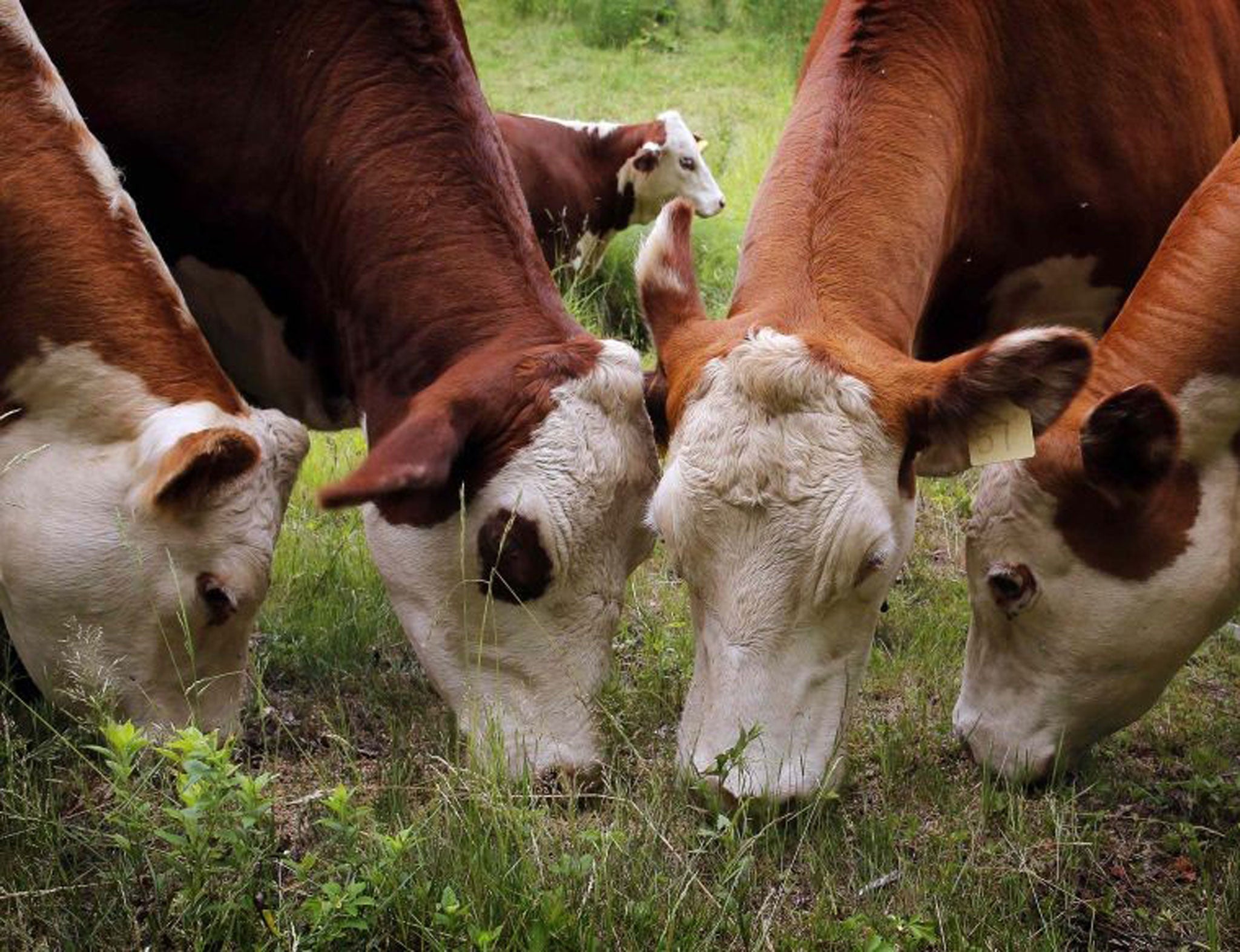Cows infected with TB sold for human consumption, says Defra
The meat is reportedly banned by most supermarkets and burger chains

Your support helps us to tell the story
From reproductive rights to climate change to Big Tech, The Independent is on the ground when the story is developing. Whether it's investigating the financials of Elon Musk's pro-Trump PAC or producing our latest documentary, 'The A Word', which shines a light on the American women fighting for reproductive rights, we know how important it is to parse out the facts from the messaging.
At such a critical moment in US history, we need reporters on the ground. Your donation allows us to keep sending journalists to speak to both sides of the story.
The Independent is trusted by Americans across the entire political spectrum. And unlike many other quality news outlets, we choose not to lock Americans out of our reporting and analysis with paywalls. We believe quality journalism should be available to everyone, paid for by those who can afford it.
Your support makes all the difference.Cows slaughtered after testing positive for tuberculosis have been sold for human consumption by the government's food and farming ministry.
The Department for Environment, Food and Rural Affairs sold raw meat from 28,000 animals a year, distributed for human consumption.
But, The Sunday Times reports, the meat is banned by most supermarkets and burger chains.
Tesco, for example, cites "public-health concerns surrounding the issue of bTB (bovine tuberculosis) and its risk to consumers," for its rejection of the meat.
The newspaper reported that the meat has been sold to processors supplying schools, hospitals and the military, or being processed into pies and pasties. The meat is sold with no warning that it comes from infected cattle.
A Defra spokeswoman said: "All meat from cattle slaughtered due to bovine TB must undergo rigorous food safety checks before it can be passed fit for consumption.
"The Food Standards Agency has confirmed there are no known cases where TB has been transmitted through eating meat and the risk of infection from eating meat, even if raw or undercooked, remains extremely low."
Asked whether the public should know whether or not the meat they are buying originated from an infected cow, a spokeswoman for the Food Standards Agency said: "All meat must be marked with an identification mark which will indicate the approval number of the plant of origin.
"However, meat from TB reactors, once it has been passed as fit for human consumption, is not required to be marked in any way to distinguish it from other meat. Meat which passes the post mortem inspection is fit for human consumption and does not need additional labelling."
If an inspection of a carcass reveals tuberculous lesions in more than one organ or region it is declared unfit for human consumption and destroyed, but if only the lymph nodes in one organ or part of the carcass is infected, then that area is removed and the rest is considered safe.
The Food Standards Agency has reported no cases of people harmed by eating the meat, and insists the risk of eating meat from cattle formerly infected with bTB is extremely low.
The Sunday Times reported that Defra's reassurances contrasted with warnings from experts, who have said rising levels of bTB in cattle are becoming a serious threat to human health.
Such claims have been used to justify a cull of tens of thousands of badgers which, are said by some, to help spread the disease between cattle.
Join our commenting forum
Join thought-provoking conversations, follow other Independent readers and see their replies
Comments